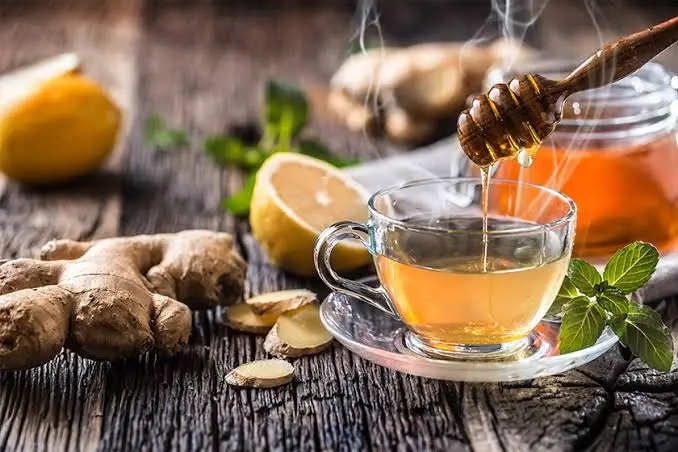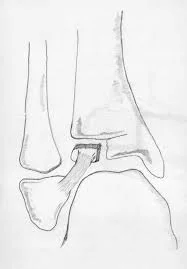Chronic Cough Home Treatment
Table of Contents
Introduction
A cough that lasts four weeks for children and eight weeks or longer for adults is considered a chronic cough.
A persistent cough is more than just a bother. A persistent cough can keep you up at night and drain your energy. Prolonged and severe coughing fits can result in nausea, dizziness, and even broken ribs.
Natural treatments for a cough can also be helpful, such as eating honey and gargling with salt water. However, medications are sometimes required.
One of the most frequent reasons people seek medical attention is for a cough. A 40% trusted Source of cases is estimated to need a referral to a pulmonologist—a physician who specializes in lung conditions.
Coughing is generally considered to be completely normal. Coughing can help get rid of irritations like dust and phlegm from your throat. However, persistent coughing can also be a sign of a number of medical problems.
Causes
Allergies or a viral illness.
A bacterial illness.
There are times when nothing concerning your lungs is the cause of your cough. Another symptom of gastroesophageal reflux disease is coughing.
Coughs occur by colds, allergies, and sinus infections while using a number of over-the-counter (OTC) drugs. Antibiotics are often necessary for bacterial infections.
Lung conditions, asthma, bronchitis, COPD.
You can ask a doctor about other ways to treat your cough in addition to medication.
Here is a list of some potential home cures.
Symptoms
Symptoms and indicators of a chronic cough can include:
- A stuffy or runny nose
- A sensation of liquid (postnasal drip) coursing down the back of your throat
- Frequent clearing of the sore throat
- A harsh voice
- Breathing difficulties and wheezing
- Acid reflux disease or a bad taste in your mouth
- Very seldom, coughing up blood
Home Treatment
Honey
Honey has long been used as a sore throat treatment.

Researchers discovered that honey may be a more effective cough reliever than some over-the-counter medications, These drugs included prescription bronchodilators like salbutamol and antihistamines like diphenhydramine.
By combining up to two teaspoons of honey with warm water, lemon, and herbal tea, you can make your own remedy at home.
While the lemon juice can help with congestion, the honey soothes. The two teaspoons of honey can also be consumed or spread on bread as Honey should never be given to infants younger than 12 months old due to the risk of botulism.
Source for Probiotics
Microorganisms known as probiotics have several health advantages. They help balance your digestive flora, even though they don’t directly cure a cough. The bacteria that reside in your intestines are called intestinal flora.
The body’s immune system can function better when this balance is maintained.
The daily recommended intakes may vary depending on the supplement manufacturer. Probiotics can also be found in miso soup, kombucha, and some varieties of yoghurt.
Considering the variety of probiotics on the market, you ought to discuss which probiotic is best for you and your condition with a physician. The most organic method of obtaining probiotics is by eating fermented foods, such as:
miso, kraut, yoghurt, kefir, kombucha, tempeh, and kimchIs
Bromelains
You may not have considered pineapple as a cough remedy because you are unfamiliar with bromelain.
Bromelain is an enzyme that can only be found in the fruit and stem of pineapples.
Eat a pineapple slice or 3.5 ounces of fresh pineapple juice three times a day to reap the maximum benefits of pineapple and bromelain.
It might aid in the relief of sinusitis and allergy-related sinus problems, which can worsen coughs and mucus production.
It’s occasionally used to treat swelling and inflammation as well.
Kids or grown-ups who take supplemental bromelain should not be taken blood thinners. Bromelain should also be avoided if you’re taking antibiotics, such as amoxicillin, as it can enhance the antibiotic’s absorption.
Before taking any new supplements, always consult your physician, particularly if you also take other medications or supplements. Some could lead to conversations.
Mint pepper
It’s common knowledge that peppermint leaves have therapeutic qualities. In addition to being a common ingredient in many different foods and drinks, peppermint oil may also help treat the symptoms of colds. Additionally, the menthol might help with a cough.
Both consuming peppermint tea and breathing in the vapours during a steam treatment have advantages.
Add about a cup of water to seven or eight drops of peppermint essential oil to create a steam treatment.
Simply heated water. Take a few deep breaths right above the water while covering your head with a towel.
Neti Pot
Upper respiratory tract inflammation is among the most frequent causes of coughing. By eliminating allergens and eliminating mucus from the nasal passages, saline irrigation, also known as rinsing with salt water, helps reduce inflammation. You can use a neti pot, which is a container, or a special bulb.
Elderberry
Elderberry extract is available as a syrup or pill supplement. Although studies show it makes your cough go away sooner, it might not immediately ease your cough.
Menthol
The naturally occurring compound in peppermint, menthol, opens your airways to facilitate easier breathing. It can therefore prevent coughs as well. Menthol is present in cough drops, tea with peppermint leaves, and chest rubs.
Root of marshmallow
The perennial Althaea officinalis, which blooms in the summer, is the source of marshmallow root. It is not equivalent to the soft marshmallow roasted over a fire.
Since ancient times, people have used the leaves and roots of the marshmallow plant to relieve sore throats and reduce coughing.
The marshmallow plant’s calming effect on inflamed sinus and throat tissues contributed to its ability to lessen coughing. The plant’s anti-inflammatory and antioxidative qualities may be the cause of this.
Additionally, the marshmallow root has mucilage that soothes irritation and coats the throat.
These days, marshmallow root is available as a tea or as a pill. If you have a sore throat and cough, the warm tea can help.
Despite the herb’s widespread safety reputation, physicians advise against giving marshmallow root and leaves to young patients.
Thyme
Thyme is used by some people to treat respiratory ailments. The herbal extracts of thyme and ivy helped lower study participants’ acute cough and cough severity.
The flavonoids in thyme leaves may help to reduce inflammation and relax the throat muscles used in coughing.
A cup of boiling water and two teaspoons of crushed thyme leaves are all you need to make thyme tea at home. After ten minutes of steeping, strain and cover the cup.
Saltwater gagging
A salt and water gargle can help relieve a scratchy throat and break up mucus that is causing you to cough, even though the treatment may seem fairly straightforward.
To relieve irritation, try combining ¼ to ½ teaspoon of salt with 8 ounces of warm water.
Keep in mind that children under the age of six are not very adept at gargling, so it is best to try other remedies for them.
Ginger is a well-liked conventional treatment. It’s commonly used to treat nausea and upset stomachs, but it can also help with coughing by dissolving mucus.
Ginger tea can be a good option if you have a cough. Your throat’s irritation, dryness, and mucus can all be lessened by the heated liquid.
Excessive ginger may result in adverse effects like heartburn, stomach discomfort, and throat irritation.
Slice a fresh ginger root into 1-inch segments to make ginger tea. Depending on how strong you want your tea, boil it in one cup of water for ten to fifteen minutes. Additionally, ginger tea bags are available online and in stores.
Elm slippery
An age-old cure for coughing and sore throats is a slippery elm. Some people say it can soothe your throat’s lining and lessen inflammation.
However, there isn’t any concrete proof of this advantage. Slick Elm doesn’t seem to have any harmful side effects.
There are slippery elm capsules, tablets, lozenges, and tea available. Tea and lozenges might be the best remedies for sore throats.
Turmeric
Over the years, traditional medicine has employed turmeric to treat a variety of conditions, including coughing. Curcuma, its main active ingredient, has strong anti-inflammatory effects.
Turmeric is more potent when taken with black pepper. This is due to the fact that piperine, the main ingredient in black pepper, makes turmeric more bioavailable. This aids in the absorption of turmeric by your body.
Try some golden milk or warm turmeric tea. Add some honey for sweetness and a pinch of black pepper.
Prevention from acid reflux triggers
When food from your stomach runs back into your throat, it’s known as acid reflux disease or GERD. Coughing may result from irritation caused by this.
Avoiding common trigger foods can help if you believe your symptoms are being caused by GERD.
Caffeine and booze
Carbonated chocolate drinks
Acidic foods include tomatoes, mint, and citrus juice
Hot dishes
High-fat meals
Sip hot liquids
Warm fluids are a good way to help soothe a cough
Drinking water helps ease the dryness in your throat, which is often the cause of coughing. Additionally, it thins mucus, which helps relieve congestion and coughing.
Drinking hot liquids, such as tea or broth, can help reduce coughing. If you’d rather have something cold, go for something without carbonation. similar to unsweetened tea or water. Rubbing ice cubes could also be beneficial.
Inhale steam
Your cough may get worse if there is dry air in your house. After a hot shower, you can breathe in the steam in the bathroom. Alternatively, you might think about purchasing a humidifier.
In addition to helping to open up your sinuses, a humidifier adds moisture to the air you breathe. Try an indoor humidity level of between 40% and 50% for the best outcomes. Dust mites, moulds, and other allergens may thrive if this is exceeded.
It’s crucial to maintain the cleanliness of your humidifier. It is advised by the Environmental Protection Agency (EPA) to clean your humidifier’s filter every two to three days.
Clear your throat. Cough drops, hard candy, or honey are some remedies for sore throats. Honey, however, should not be given to infants under the age of one as it may contain bacteria that could be harmful to them.
NAC or N-acetylcysteine
Researchers think that NAC, an amino acid, may have anti-inflammatory and antioxidant qualities. Although foods like legumes, chicken, and eggs naturally contain cysteine, NAC is only found as a supplement.
For long-term respiratory conditions like COPD or chronic bronchitis. However, not enough research has been done to determine if this supplement works well for treating sudden coughs.
NAC might work well as an expectorant.
The following are possible adverse effects of taking oral NAC.
Itchiness vomiting nausea
Club for Better Breathers
Better Breathers Clubs offer support from people who understand your struggles and teach coping mechanisms for lung disease. These live support groups provide you with the resources you need to lead the highest-quality life possible.
Prevention
You may want to learn how to avoid coughs altogether in addition to how to treat them when they occur.
To aid in preventing the flu, remember to get your yearly influenza vaccination, which typically begins in October.
Frequently washing your hands and adopting preventative measures, like donning a mask, can serve as a shield against COVID-19 and other viral infections that cause cough.
If you have allergies, you can lessen the frequency of flare-ups by learning which allergens affect you and avoiding contact with them. Typical allergens consist of:
Pollen, dust mites, animal fur, mould insects, and trees
Having allergy shots can help lessen your sensitivity to allergens. To find out which plan is best for you, think about consulting a physician.
Avoid irritants. Reducing your exposure to an irritant that you know causes your cough is a good idea.
Consume a lot of liquids. This will keep you hydrated and help thin mucus.
Avoid tobacco smoke. Smoke from tobacco products irritates the lungs and exacerbates coughing.
Soften the atmosphere. Utilising a cool-mist humidifier could potentially alleviate your cough. Make sure you regularly clean the humidifier’s water basin.
Summary
Saltwater gargles and honey are common natural cough remedies. Herbal teas prepared from marshmallow root, peppermint, ginger, slippery elm, thyme, and turmeric are also available.
Probiotics and supplements containing bromelain may help reduce cough symptoms, but further research is required. Avoiding trigger foods may also help if GERD is the cause of your cough. It is also crucial to stay well-hydrated in order to relieve a cough.
Make sure to visit a doctor if your cough doesn’t go away. They can assist in identifying the cause of your symptoms and assisting in the selection of the most effective cough remedy.
FAQs
A persistent cough could be brought on by: a chronic respiratory infection, like chronic bronchitis
Hot water with honey, tea, or lemon juice can be effective treatments for dry, hacking coughs.
It helps to stop coughing by interacting with cold receptors in the throat and nose.
Paroxysmal, dry, wet, and chronic
Coconut oil can help relieve coughing and sore throats gently.
References
- Ashpari, Z. (2023, March 10). The best natural cough remedies. Healthline. https://www.healthline.com/health/allergies/best-natural-cough-remedies#prevention
- American Lung Association. (n.d.). Living with chronic cough. https://www.lung.org/lung-health-diseases/lung-disease-lookup/chronic-cough/treating-and-managing
- Professional, C. C. M. (n.d.-b). Chronic cough. Cleveland Clinic. https://my.clevelandclinic.org/health/symptoms/15048-chronic-cough-overview
- Leonard, J. (2023, August 29). What can I do to make my cough go away naturally? https://www.medicalnewstoday.com/articles/322394#how-to-prevent-a-cold
- Natural cough remedies. (n.d.). WebMD. https://www.webmd.com/cold-and-flu/ss/slideshow-natural-cough-remedies
- Chronic cough – Symptoms and causes – Mayo Clinic. (2019, July 9). Mayo Clinic. https://www.mayoclinic.org/diseases-conditions/chronic-cough/symptoms-causes/syc-20351575







